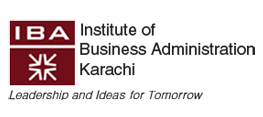The development of the Islamic Banking in Kyrgyzstan
Submission Type
Inaugural Session
Abstract/Description
Islamic Banking refers to a system of banking or banking activity which is consistent with Islamic Law (Shariah Law) and is guided by Islamic economics. Islamic law strictly prohibits the collection and payment of interest, also commonly called riba, trading in financial risk (gambling) and investing in haram business. The main role of Islamic Banking is to facilitate transferring of financial resources from surplus units to deficit units and, hence, helping to accelerate the pace of development by securing uninterrupted supply of financial resources to people engaged in economic activities. The growth and development of the Islamic finance must be accompanied by the corresponding development of the supporting legal, regulatory and supervisory framework to ensure its soundness and stability. The legal, regulatory framework are an important pillars in the development of Islamic finance for every country. Its objectives are to maintain confidence in the banking system, protect consumers and promote public awareness.
Keywords
Islamic Banking & Finance, Legal and Regulatory Framework, Islamic Finance Institutions, Shariah Council, Shariah Law, Islamic Law, Islamic economics, Kyrgyzstan
Session Chair
Dr. Aishath Muneeza, Associate Professor, INCEIF, Malaysia
Session Host
Mr. Muhammad Raza, Customer Support & General Services, Meezan Bank Limited
Start Date
30-5-2022 5:30 PM
End Date
30-5-2012 5:45 PM
Recommended Citation
Omurzakov, K. (2022). The development of the Islamic Banking in Kyrgyzstan. IBA CEIF World Islamic Finance Forum (WIFF). Retrieved from https://ir.iba.edu.pk/wiff/2022/agenda/7
COinS
The development of the Islamic Banking in Kyrgyzstan
Islamic Banking refers to a system of banking or banking activity which is consistent with Islamic Law (Shariah Law) and is guided by Islamic economics. Islamic law strictly prohibits the collection and payment of interest, also commonly called riba, trading in financial risk (gambling) and investing in haram business. The main role of Islamic Banking is to facilitate transferring of financial resources from surplus units to deficit units and, hence, helping to accelerate the pace of development by securing uninterrupted supply of financial resources to people engaged in economic activities. The growth and development of the Islamic finance must be accompanied by the corresponding development of the supporting legal, regulatory and supervisory framework to ensure its soundness and stability. The legal, regulatory framework are an important pillars in the development of Islamic finance for every country. Its objectives are to maintain confidence in the banking system, protect consumers and promote public awareness.



